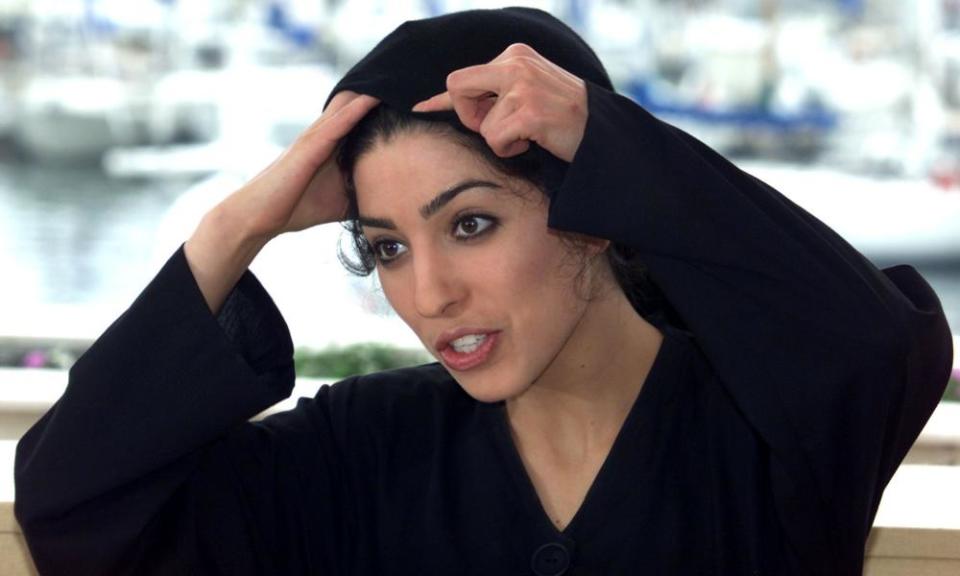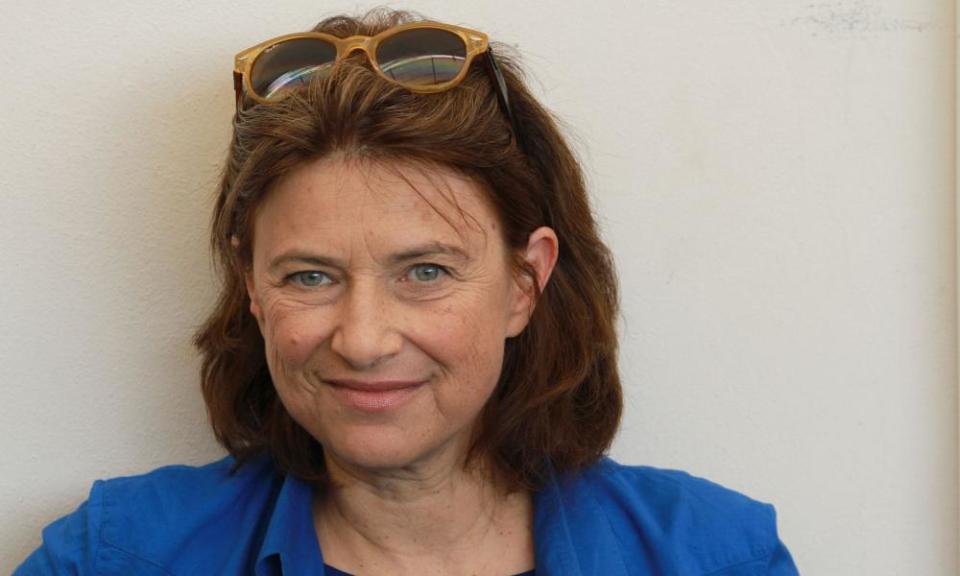Teenage flicks: the youngest film-makers ever
There are few things the film industry loves more – at least in the short run – than a hot young director. Of course, few would-be auteurs go on to replicate the long-term success of one-time wunderkinds like Quentin Tarantino, Robert Rodriguez, Paul Thomas Anderson, or Ava DuVernay, but, hey, at least they got their movie made and seen. As anyone who’s ever tried to direct a film can testify, that’s no small feat.
Related: 'I had to make this happen': how a 19-year-old director wowed Hollywood
That’s why it’s even more impressive (and, often, kind of annoying) when an especially green director comes bursting on to the scene from out of nowhere.
Such is the case with Phillip Youmans, the 19-year-old NYU undergraduate whose feature debut, the Louisiana-set spiritual and familial drama Burning Cane, was recently released to widespread critical acclaim (it’s now available on Netflix). Youmans expanded Burning Cane from a short film he’d started making at only 16 by emptying his meager savings account and borrowing from family and friends. His gumption led to a chance meeting with character actor Wendell Pierce, who lent his talents as both actor and producer, as well as Beasts of the Southern Wild director Ben Zeitlin (himself a former fresh-faced indie darling), who served as a mentor for Youmans, helping him shape the film’s final cut.
Youmans’s story is inspirational, but hardly unprecedented. He joins a long and eclectic tradition of tenderfoot film-makers making good on their cinematic dreams – some of whom started even younger.
Brooklynn Prince
Any number of the most famous and revered directors of the past half-century – Steven Spielberg, Tim Burton, Peter Jackson – got their start by making home movies, student films and shorts, but for the purposes of this list, I wanted to mostly stick to features, with just a few exceptions.
One such exception is Brooklynn Prince, the irascible young actor who, at the age of eight, turned in one of the best performances of the decade in 2017’s The Florida Project. Shortly after that film’s release, Prince announced her intention to direct. With some help from mentor and Florida Project director Sean Baker, she made good on her word, writing and directing Colours, a charming (and very well shot) short which recently premiered on Curated by Facebook.
Xavier Dolan
Xavier Dolan has been regarded as the enfant terrible of indie film-making for the past decade. If that seems like too long a time for someone to hold such a moniker, consider that he is only 30. At 20, the film-maker from Quebec used the money he’d earned as a child actor to write, direct, produce and star in the audacious and semi-autobiographical I Killed My Mother, which premiered at the 2009 Cannes film festival and won a number of awards and accolades in Canada (including being chosen as the nation’s entry for 2010’s best foreign language film Oscar, although it did not end up earning a nomination).
Dolan has remained a mainstay on the international festival circuit ever since, directing seven films over the course of the decade, including 2014’s Mommy, which shared that year’s Cannes jury prize with Jean-Luc Godard’s Goodbye to Language. His English language debut, The Death & Life of John F Donovan suffered negative reviews and a troubled post-production but Dolan is young enough that he hasn’t had much trouble bouncing back with his next film, Matthias & Maxime, returning him to critical glory.
Emily Hagins
Austin-based Emily Hagins made her feature debut aged 12 with the (very) DIY zombie thriller Pathogen, becoming a local legend among the movie-obsessed denizens of that city, as well as the online horror community. She then parlayed what could have been a one-off gimmick into a legitimate career, following it up with her 2009 sophomore effort The Retelling and the 2011 horror-romcom My Sucky Teen Romance, which premiered at SXSW.
In the intervening years, Hagins has directed two more features, including the 2017 Netflix original Coin Heist, as well as the six-part digital series, Hold to Your Best Self. That’s five features and a series – all by the age of 27.
Saugat Bista, Kishan Shrikanth and Sydney Ling
It’s one thing to be a wunderkind, and another thing to be a world record holder. If you look up Youngest Film Director in the Guinness Book of World Records, you’ll find Saugat Bista, who, at the age of seven (!) helmed the professionally made, full-length Nepalese family drama Love You Baba.
Before Bista, that record belonged to 10-year-old Karnataka child star Kishan Shrikanth, who, in 2006, leveraged his popularity to helm C/o Footpath (Care of Footpath). Shrikanth adapted the film, about a young orphan from the slums who strives to go to school and get an education, from his own short story, and also starred in it.
Before Shrikanth, Guinness held Dutch film-maker Lord Sydney Ling, who made Lex, the Wonder Dog at 13, as the youngest director of a professionally made feature film. There’s scant information to be found online about Ling or Lex, but one rumor has it that another film he directed may hold the world record for longest documentary, clocking in at over 24 hours.
Samira and Hana Makhmalbaf

It should come as no surprise that sisters Samira and Hana Makhmalbaf would prove themselves natural film-makers, considering they are the daughters of Mohsen Makhmalbar and Marzieh Meshkin, two of the most important figures in all of Iranian cinema. Even still, their early output is unbelievably impressive.
At 17, Samira directed her debut feature, La Pomme (The Apple), which premiered at Cannes in 1998. She would go on to be one of the defining voices of the Iranian new wave, her bold, politically charged films earning her a reputation as one of the best working film-makers in the world.
Hana likewise followed in the family footsteps, directing an acclaimed short film when she was eight. She followed that up at age 15 with her documentary Joy of Madness, about the making of her sister’s film At Five in the Afternoon. Joy screened at a number of high-profile film festivals, including Cannes, where it earned Samira the distinction of being the youngest person to have a film screened at the festival (a record that previously belonged to, you guessed it, her sister).
Chantal Akerman

After dropping out of film school at 18, Belgian director Chantal Akerman burst on to the international scene with her short film Saute ma ville. She followed it up the next year with her first feature, the silent, American-made documentary Hotel Monterey. After another feature and a couple more shorts, she directed her masterpiece – and one of the most influential examples of slow cinema – Jeanne Dielman, 23 Quai du Commerce. Akerman had almost 50 directorial credits, across a variety of media and forms (features, documentaries, television, shorts) to her name when she died in 2015.
Don Coscarelli
In 1975, at the age of 19, Don Coscarelli had the distinction of being the youngest director to have an office on a major studio lot. That studio was Universal, which picked up his (and co-director Craig Mitchell’s) independently financed feature Jim the World’s Greatest, which the duo brazenly embarked upon after cutting their teeth shooting backyard movies and a couple of local television ads.
A surprisingly dark coming of age film, Jim the World’s Greatest didn’t end up opening as many doors for Coscarelli as he initially hoped. However, that didn’t stop him from honing a long and storied career in independent film, where he would go on to make a handful of hair-raising, mind-bending cult classics, including the Phantasm series, The Beastmaster, Bubba Ho-Tep (which, full disclosure, I happen to be an extra in), and John Dies at the End.
Brian De Palma
Like most of the other film brats of the New Hollywood Generation, including George Lucas, Martin Scorsese and Francis Ford Coppola, Brian De Palma started making his own movies while in his early 20s – 23, to be exact. He gets special notice however, because his first feature, The Wedding Party, shot in 1963 (although it wouldn’t see release until 1969), predates most of his peers’ by a couple of years.
(Coppola made his first feature one year earlier, also at the age of 23, although his film, the softcore comedy Tonight for Sure isn’t quite as highly regarded as The Wedding Party, nor does it boast the first onscreen performance by Robert De Niro.)
At 79, De Palma is still making movies (his latest, the espionage thriller Domino, came out earlier this year), and while his output over the past 17 years hasn’t been particularly strong, there’s always the chance that, like his past collaborator (and current-day rival) Paul Schrader, he has a late career masterwork in him yet.
Orson Welles
Several classic-era directors got their start young – John Ford and Alfred Hitchcock began directing in their early 20s – but if anyone truly stands as the poster child for cinematic wunderkinds (and all that entails, good and bad), it’s Orson Welles.
Declared a child prodigy at the age of 10, Welles got his start in theater as an actor when he was 16. He would go on to stage a number of groundbreaking productions as a director, co-founding the Mercury Theatre company along the way. By age 22 he was a bona fide Broadway titan, as well as a notorious radio star thanks to his infamous War of the Worlds broadcast in October of 1938.
In 1941, Welles made the jump to movies, securing an unheard-of deal with RKO Pictures, which gave him almost total creative control (including final cut). The result of that deal was Citizen Kane, in which he starred and directed. While Kane’s initial release would prove fraught and, for Welles, personally disappointing (much the same could be said for the career that followed), it would eventually go on to be regarded as the most technically influential film of its era, as well as “The Greatest Movie of All Time”. Not bad for a 25-year-old.
